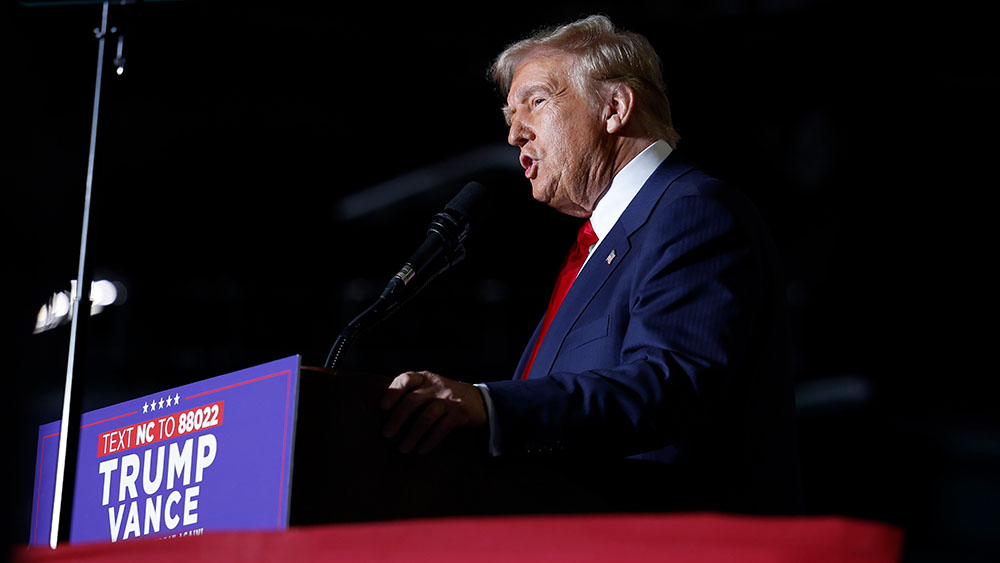Trump administration executes mass firings at U.S. Institute of Peace, citing wasteful spending
- DOGE terminated between 200 and 300 employees at USIP, nearly its entire headquarters staff, as part of the Trump administration’s effort to dismantle the organization.
- The administration argues USIP has failed its mission of promoting global peace and wastes taxpayer dollars, despite its $55 million annual budget and decades of diplomatic work.
- The layoffs followed a February executive order by President Donald Trump. A federal judge rejected USIP’s request to block DOGE’s takeover, allowing the administration to proceed.
- The USIP firings coincided with plans to shut down USAID, signaling a major restructuring of U.S. foreign policy institutions, drawing criticism for potentially weakening global influence.
- Supporters praise cost-cutting efforts, while critics warn of long-term diplomatic consequences. Legal challenges continue, leaving USIP’s future and U.S. foreign policy stability in question.
In a dramatic move to cut what the Trump administration deems wasteful spending, the Department of Government Efficiency (DOGE) fired hundreds of employees at the U.S. Institute of Peace (USIP) on Friday. According to multiple sources, between 200 and 300 staff members—nearly the entire headquarters staff—received termination notices via email. The firings are part of a broader initiative to dismantle the congressionally funded organization, which was established in 1984 under President Ronald Reagan.
Background and context
The U.S. Institute of Peace has been a cornerstone of U.S. foreign policy for decades, engaging in diplomatic efforts and conflict prevention worldwide. The organization, with a $55 million annual budget, is tasked with promoting global peace and conflict resolution. However, the Trump administration has long been critical of the institute, arguing that it has failed to achieve its mission and is a drain on taxpayer dollars.
Executive order and legal battle
The mass layoffs were a direct consequence of an executive order signed by President Donald Trump in February, aimed at dismantling the USIP. The administration has been working to freeze the organization’s funding and replace its board. In response, USIP sought a temporary restraining order to prevent DOGE from taking over its operations. However, a federal judge declined to grant the request, allowing the administration’s efforts to proceed.
White House deputy press secretary Anna Kelly defended the decision, stating, “Taxpayers don’t want to spend $50 million per year on a publicly funded ‘research institute’ that has failed to deliver peace. President Trump ended the era of forever wars and established peace in his first term, and he is carrying out his mandate to eliminate bloat and save taxpayer dollars.”
Impact and reactions
The terminations have sent shockwaves through the foreign policy community. George M. Foote, outside general counsel for USIP, criticized the move, calling it “unconscionable and deeply troubling.” He stated, “The Institute’s employees are fiercely dedicated to their important work, and they don’t deserve to be treated with such disrespect. This action only adds urgency to the complaint that has been filed to halt and reverse the Administration’s unlawful attempt to dismantle the Institute. We will continue to press this matter in court, where we are confident we will prevail.”
The firings coincide with another major shake-up in the administration’s foreign policy approach. On the same day, the Trump administration moved forward with its plan to formally shut down the U.S. Agency for International Development (USAID), a key player in international development and humanitarian aid. The closure of USAID has drawn sharp criticism from both domestic and international observers, who warn that it could undermine U.S. influence in global affairs and weaken diplomatic efforts.
Broader implications
The Trump administration’s moves against USIP and USAID are part of a broader agenda to restructure federal agencies and cut what it perceives as unnecessary expenditures. DOGE has been actively reviewing government programs, with more agencies potentially facing budget cuts or closures in the coming months.
Supporters of the initiative praise the administration’s focus on reducing bureaucracy and saving taxpayer money. However, critics warn that dismantling institutions like USIP and USAID could have long-term consequences for America’s role in international conflict resolution and foreign aid.
Conclusion
As the fallout from these decisions continues, the future of the U.S. Institute of Peace and the broader landscape of U.S. foreign policy remain uncertain. The Trump administration’s actions have reignited debates about the role of government-funded institutions in promoting peace and stability. The coming months will be crucial in determining the long-term impact of these changes on America’s global standing and its ability to engage effectively in international affairs.
Sources include:
YourNews.com
Breitbart.com
CBSNews.com
Read full article here


